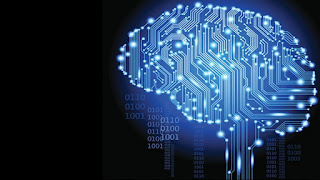The Impact of Artificial Intelligence on Employment
 Artificial intelligence (AI) is rapidly becoming a defining technology of our time, with the potential to transform nearly every aspect of society. One area of particular concern is its impact on employment. As AI systems become increasingly sophisticated and able to perform a wider range of tasks, many experts fear that they will ultimately displace large numbers of jobs currently done by humans. In this essay, we will explore the potential effects of AI on employment, examining both the potential benefits and the potential downsides.
Artificial intelligence (AI) is rapidly becoming a defining technology of our time, with the potential to transform nearly every aspect of society. One area of particular concern is its impact on employment. As AI systems become increasingly sophisticated and able to perform a wider range of tasks, many experts fear that they will ultimately displace large numbers of jobs currently done by humans. In this essay, we will explore the potential effects of AI on employment, examining both the potential benefits and the potential downsides.
One of the most significant potential benefits of AI in the employment context is increased productivity. As AI systems become more capable, they will be able to perform a wide range of tasks that are currently done by humans more quickly, accurately, and efficiently. This will free up human workers to focus on more complex and higher-value tasks, leading to increased productivity and economic growth.
Additionally, AI systems can also create new jobs in areas such as data analysis, machine learning, and AI development. As businesses increasingly adopt AI systems, there will be a growing need for professionals with the skills to develop and maintain these systems, as well as to analyze the data they generate. This will lead to the creation of new job opportunities, and could also lead to higher salaries for workers with the relevant skills.
However, there are also concerns about the potential negative effects of AI on employment. One of the most significant concerns is that AI systems will displace large numbers of jobs currently done by humans. As AI systems become more capable, they will be able to perform a wide range of tasks that are currently done by humans, including tasks that require high levels of skill and expertise. This will lead to significant job losses, particularly in industries such as manufacturing, transportation, and customer service.
Another concern is that AI systems will lead to increased income inequality. As AI systems become more capable, they will be able to perform a wide range of tasks that are currently done by humans, including tasks that require high levels of skill and expertise. This will lead to significant job losses, particularly in industries such as manufacturing, transportation, and customer service. These jobs are often held by workers who do not have the skills or education to compete for the new jobs created by AI, leading to increased income inequality.
Furthermore, AI can also have a profound impact on the nature of work itself. AI systems can automate many routine and repetitive tasks, leaving workers with fewer opportunities to engage in meaningful and fulfilling work. This could lead to increased dissatisfaction and disengagement among employees, and ultimately, could contribute to the erosion of social cohesion.
In conclusion, the impact of AI on employment is complex and multifaceted. While AI has the potential to increase productivity and create new job opportunities, it also poses significant risks to employment and income inequality. To mitigate these risks, policymakers and business leaders must work together to develop strategies that promote the responsible development and deployment of AI systems. This could include investing in education and training programs to help workers acquire the skills needed to compete in the new economy, as well as implementing policies to support workers who are displaced by AI systems. Ultimately, the key to harnessing the full potential of AI for employment is to develop a comprehensive and forward-looking strategy that balances the potential benefits of AI with the potential risks.


Comments
Post a Comment